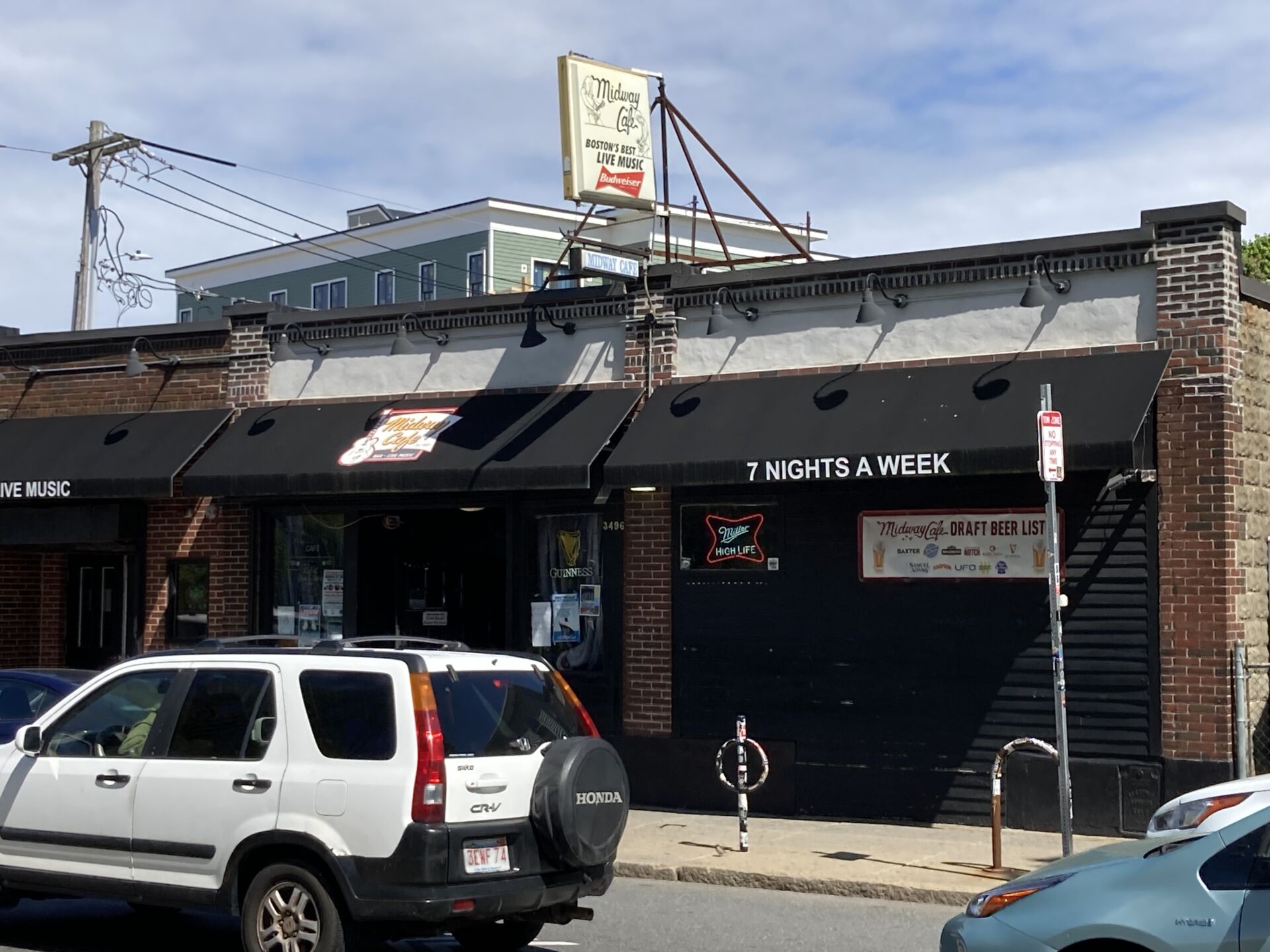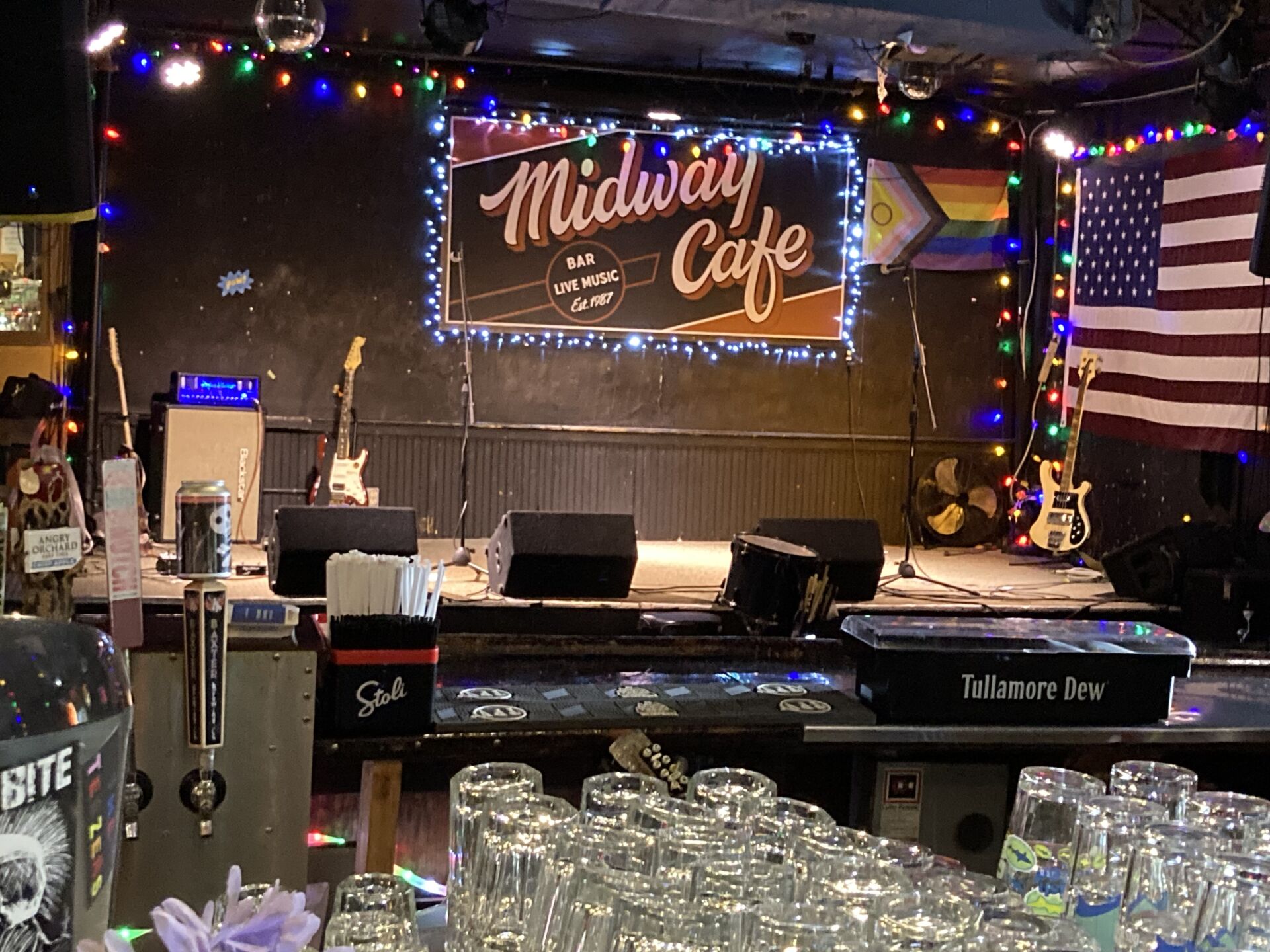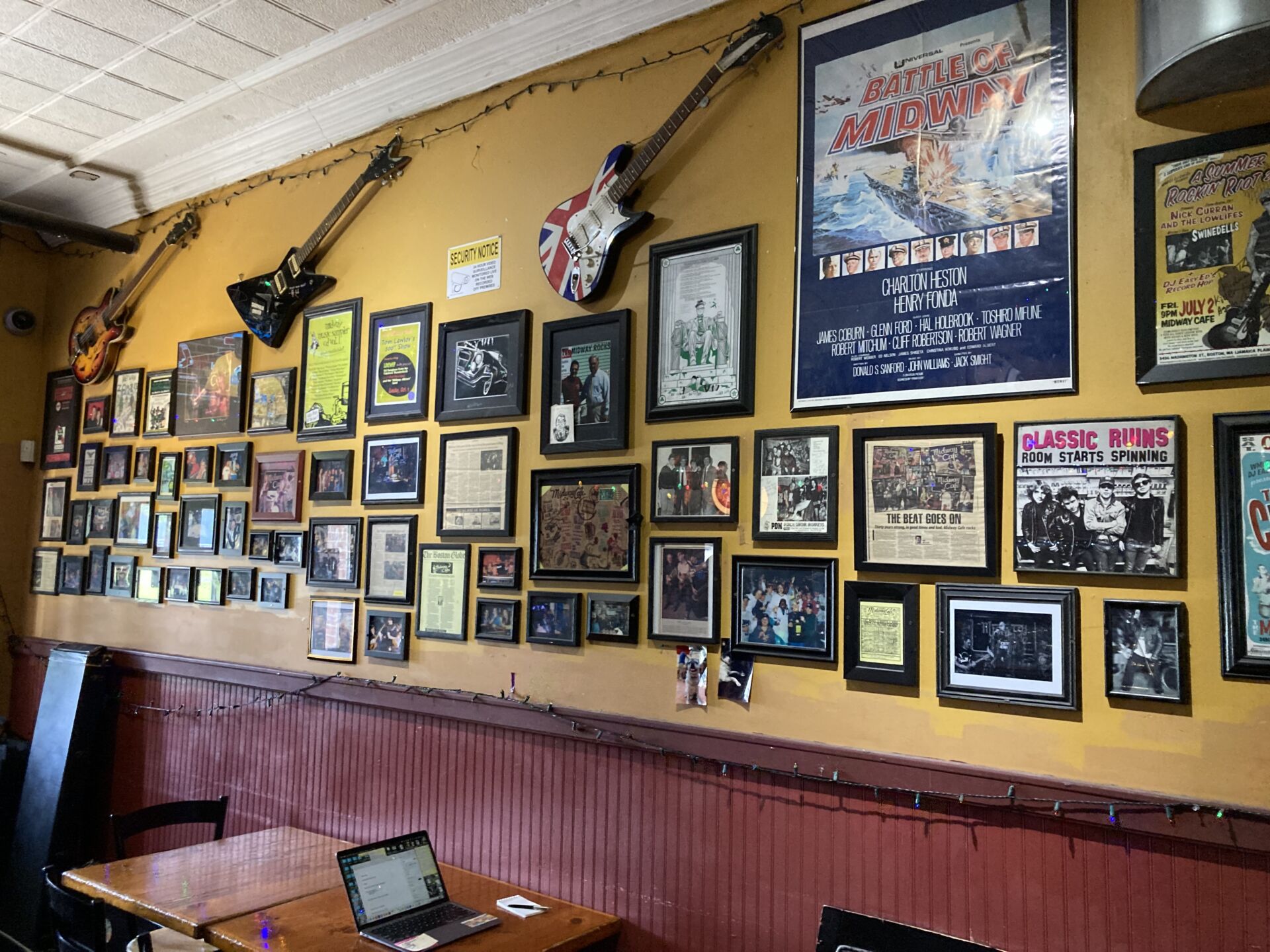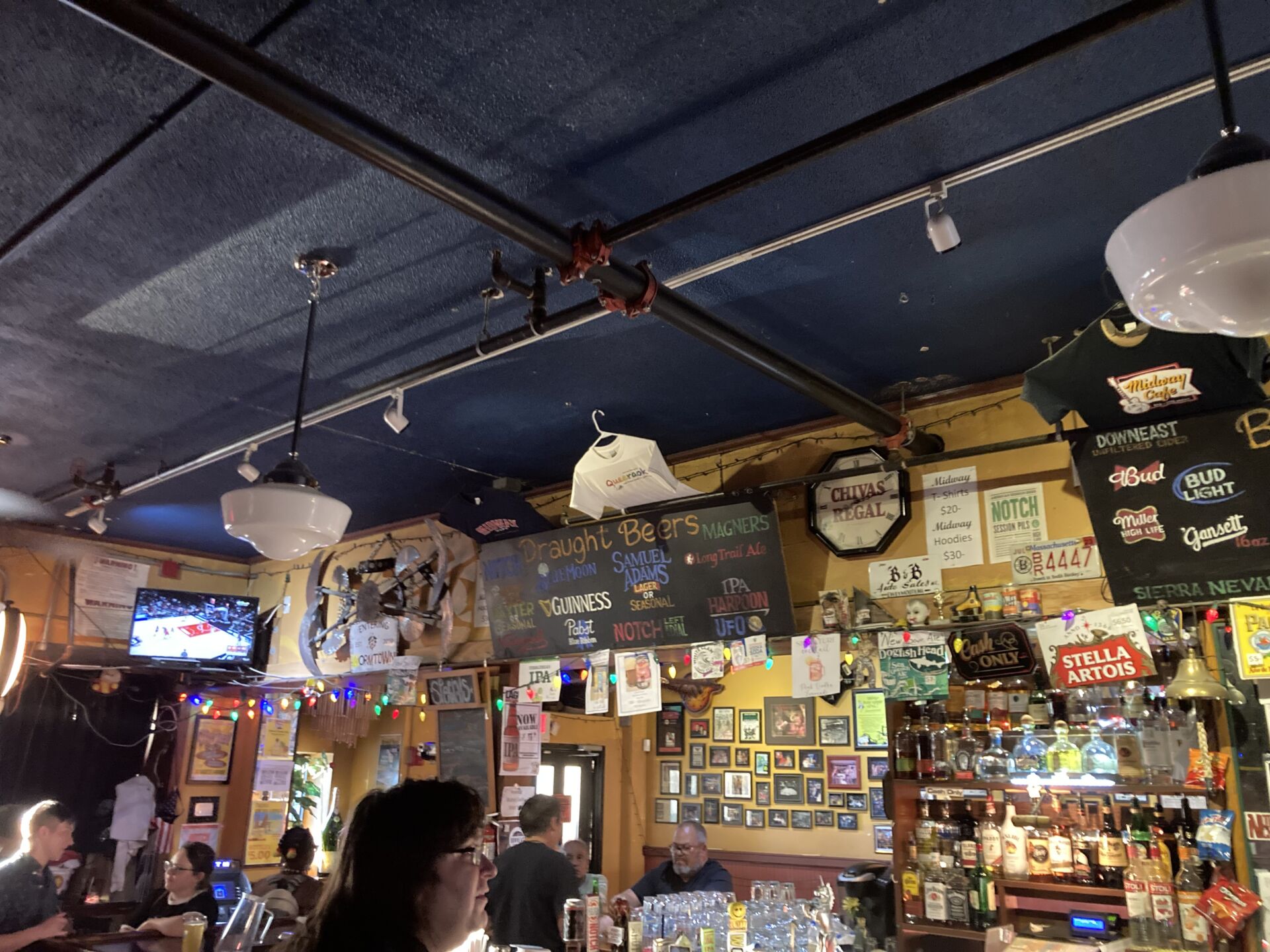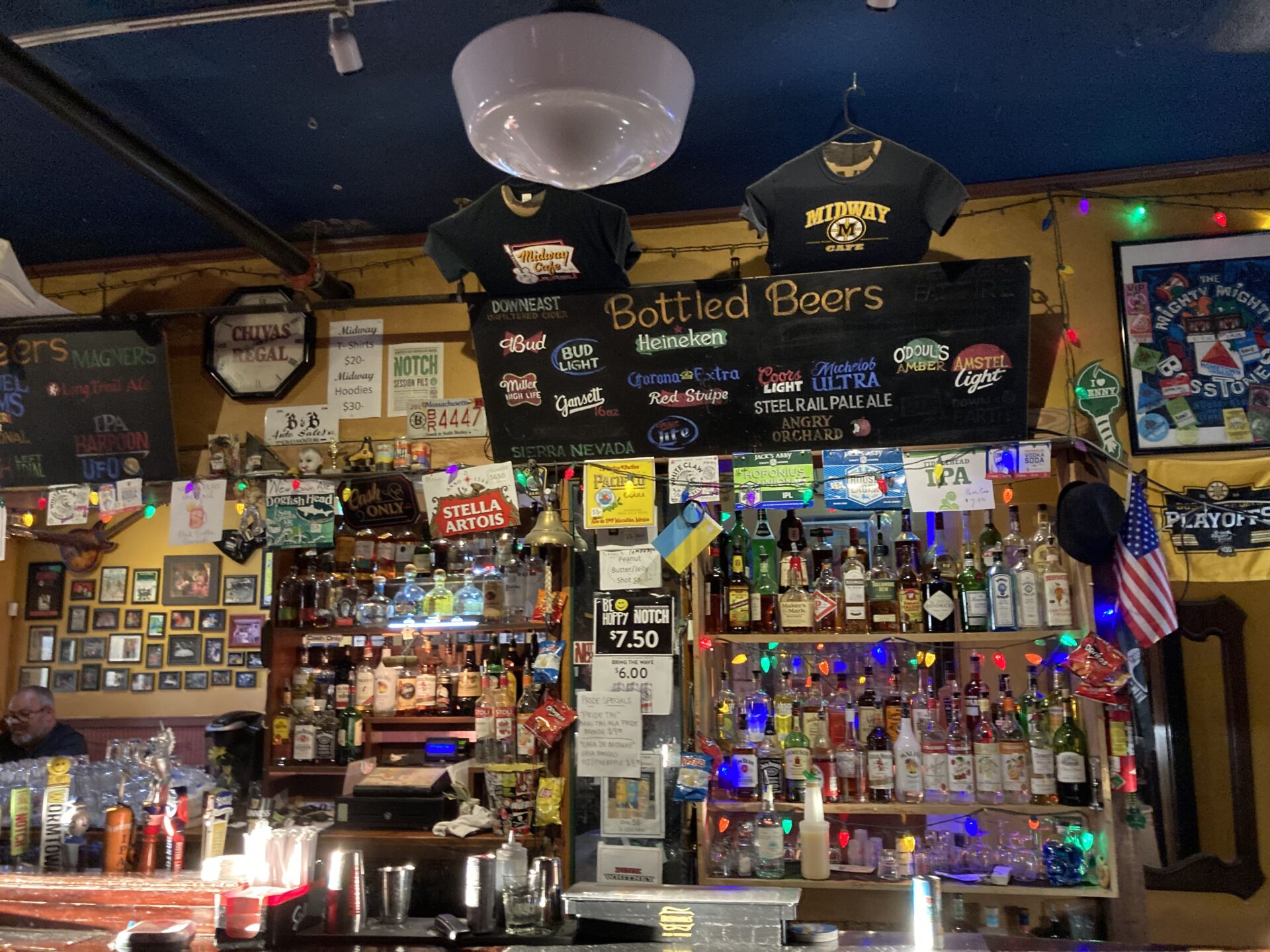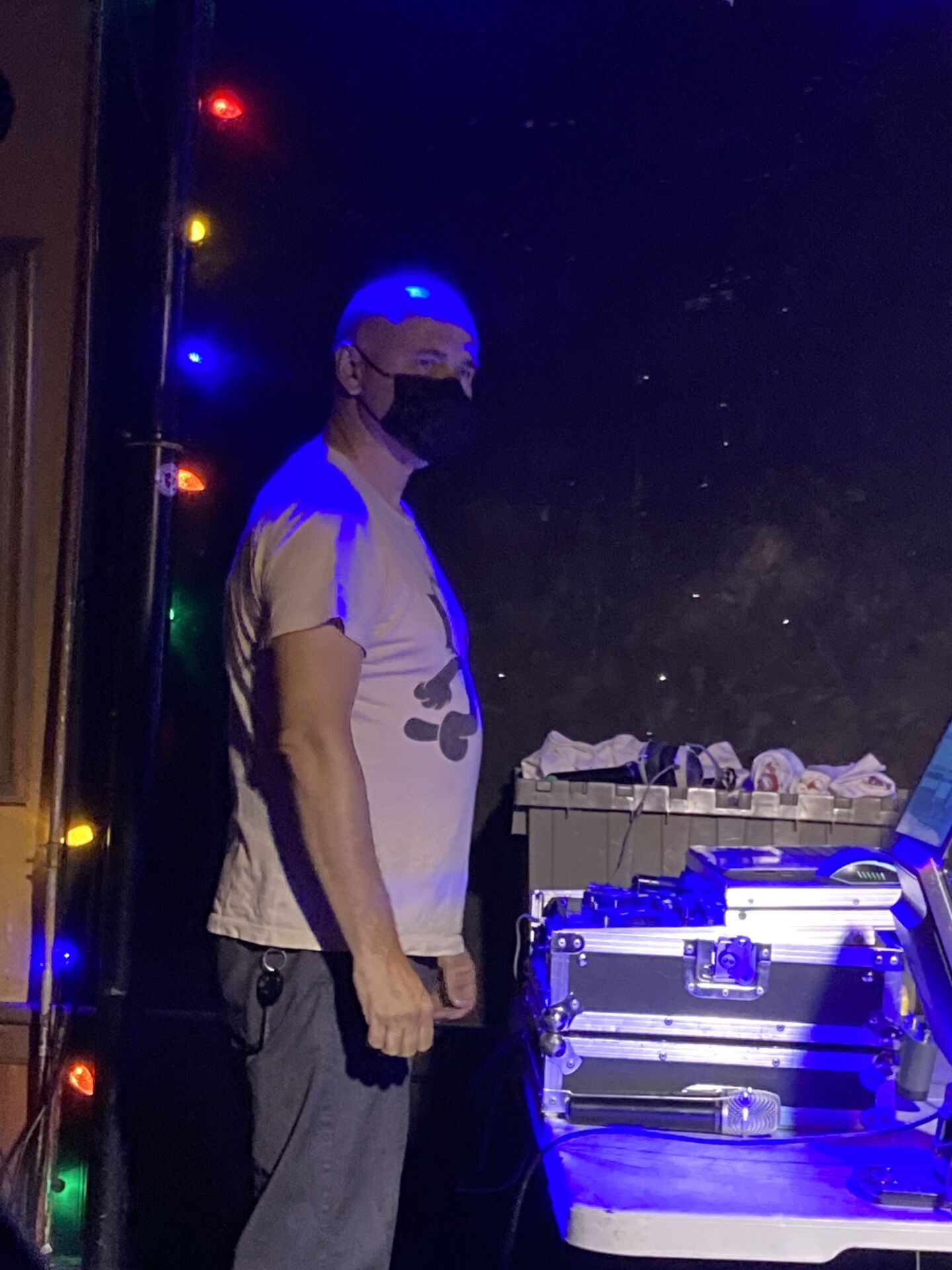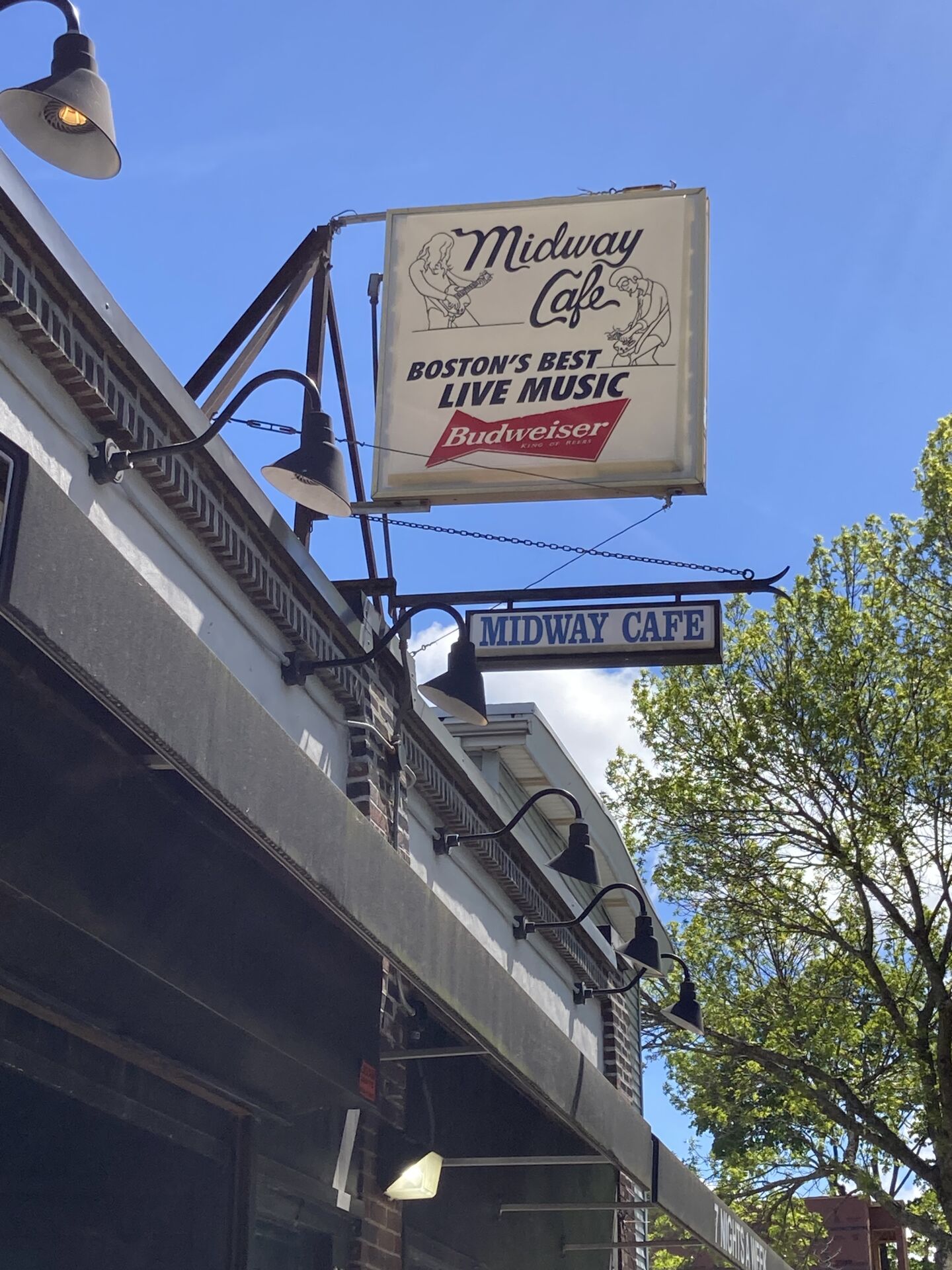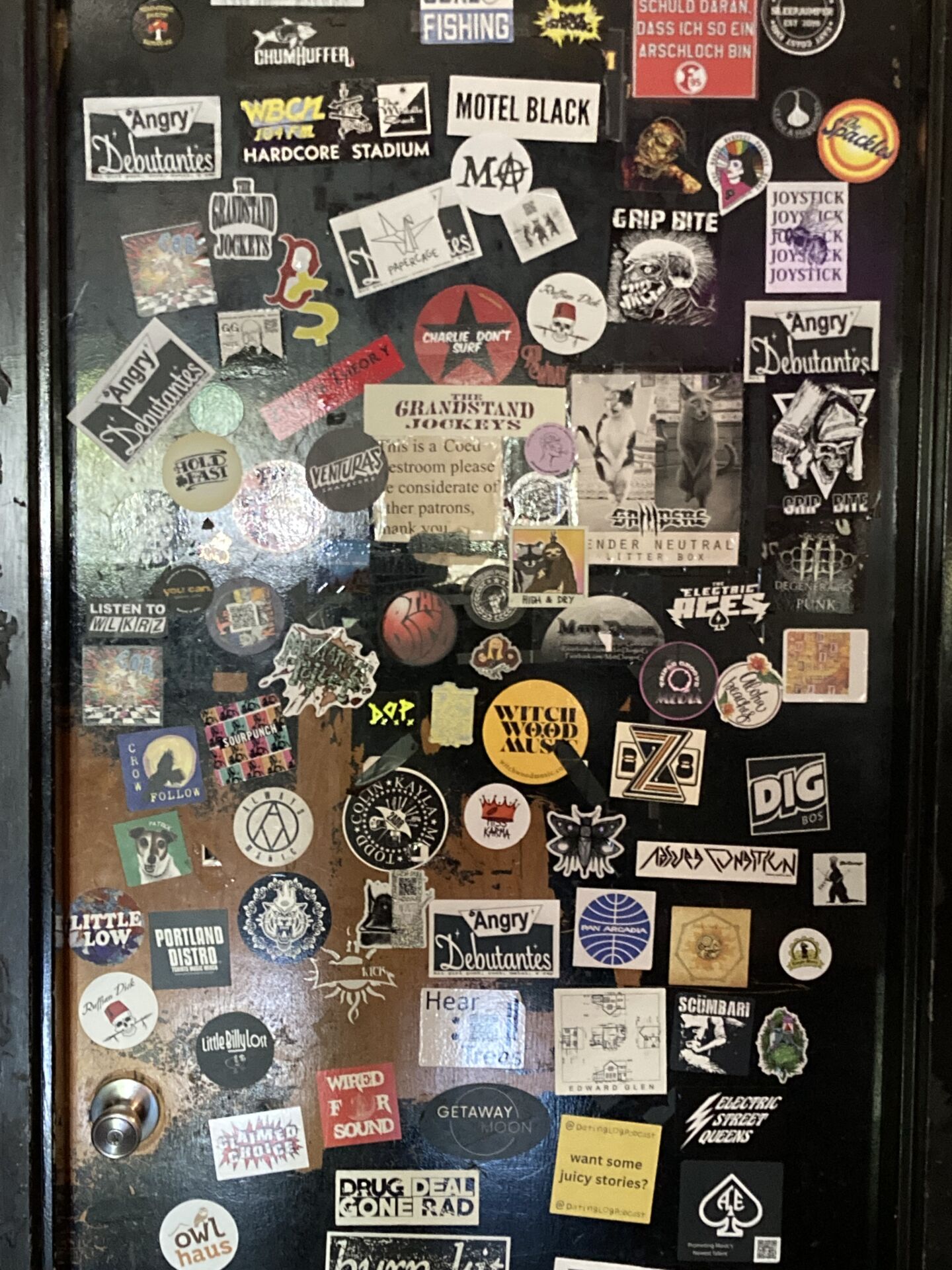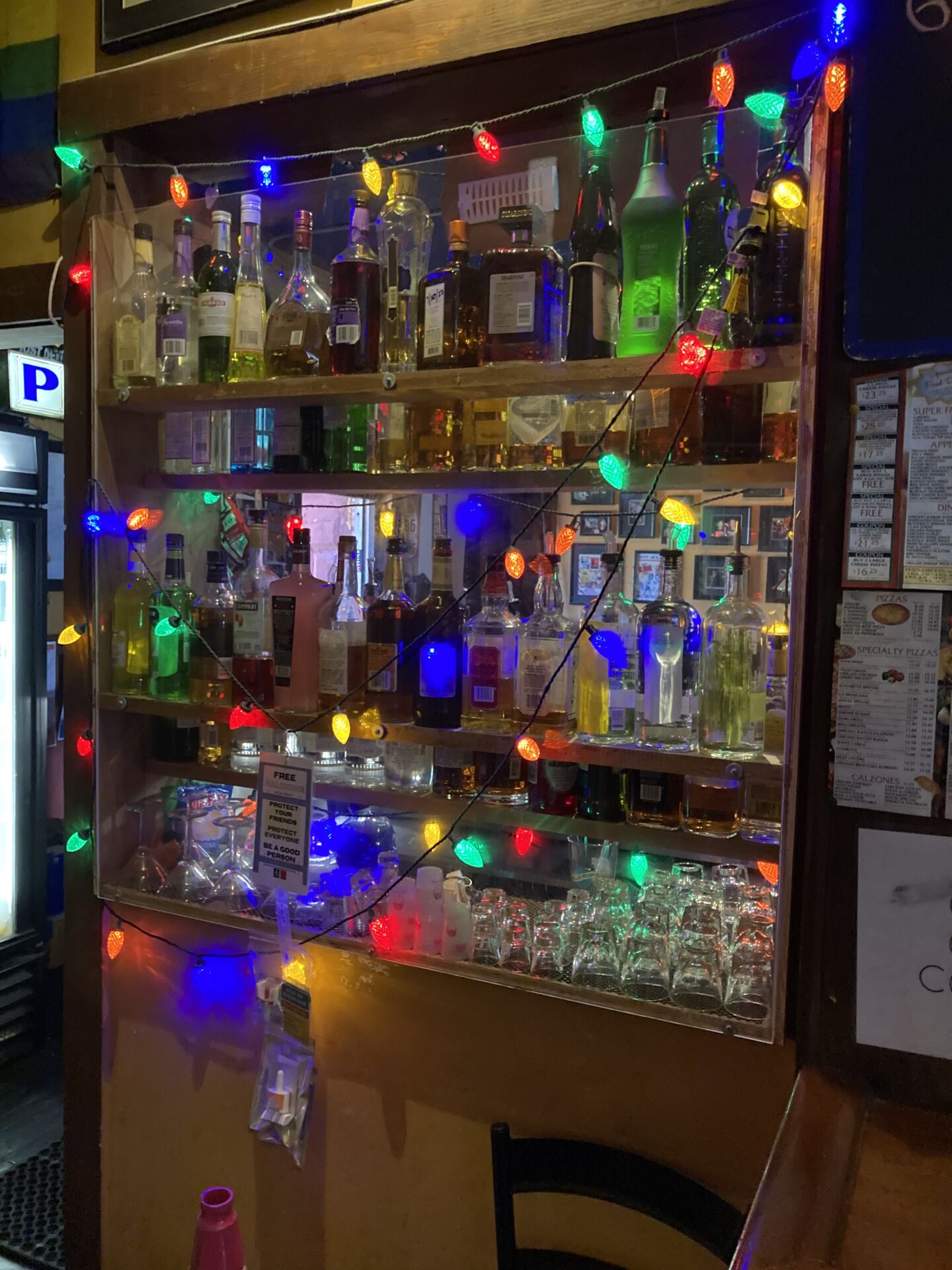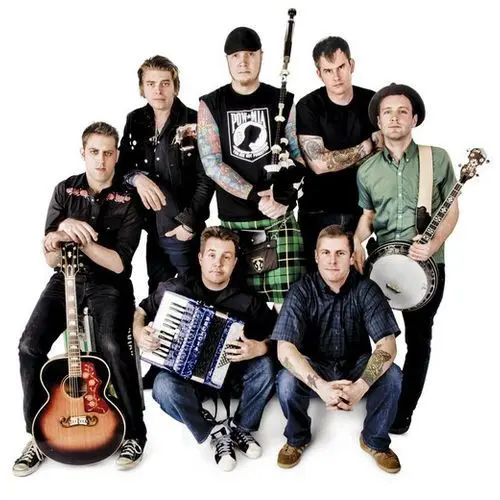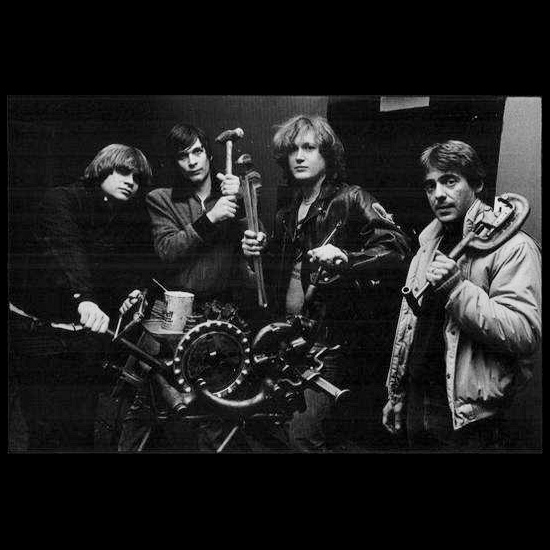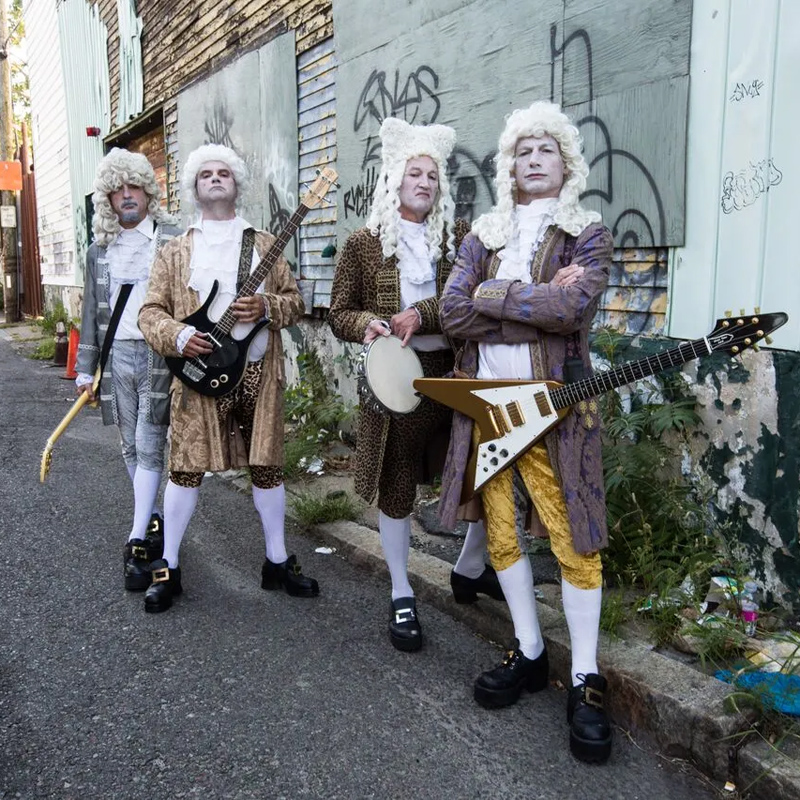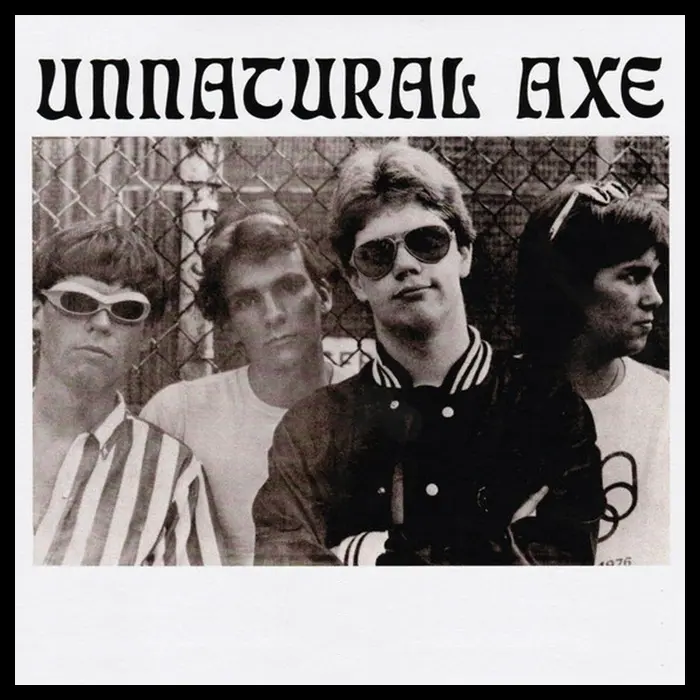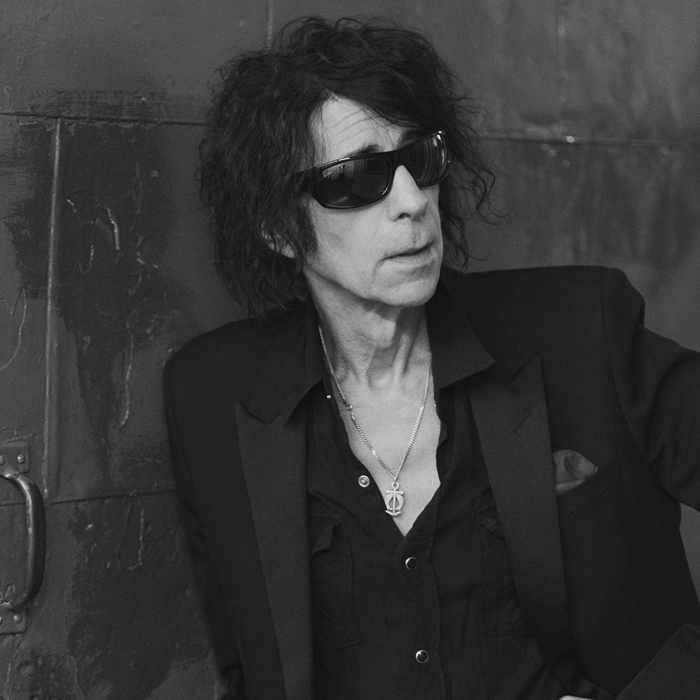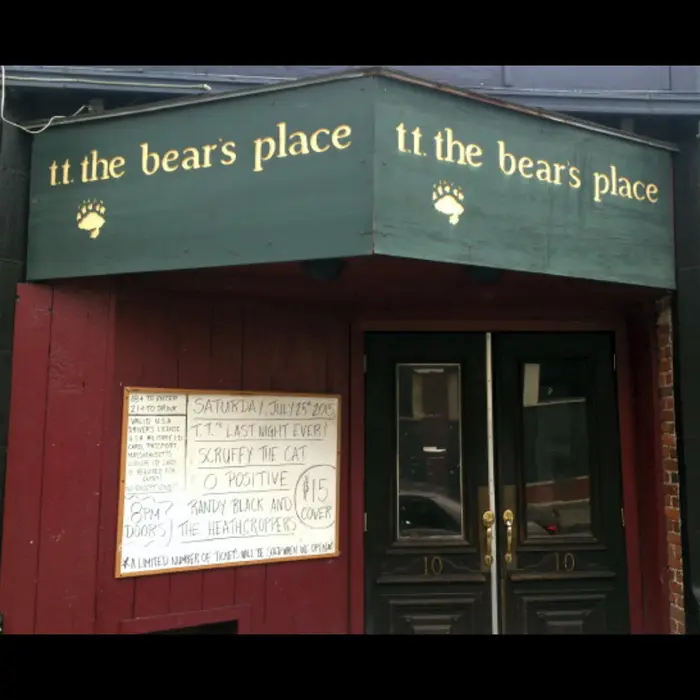Midway Cafe
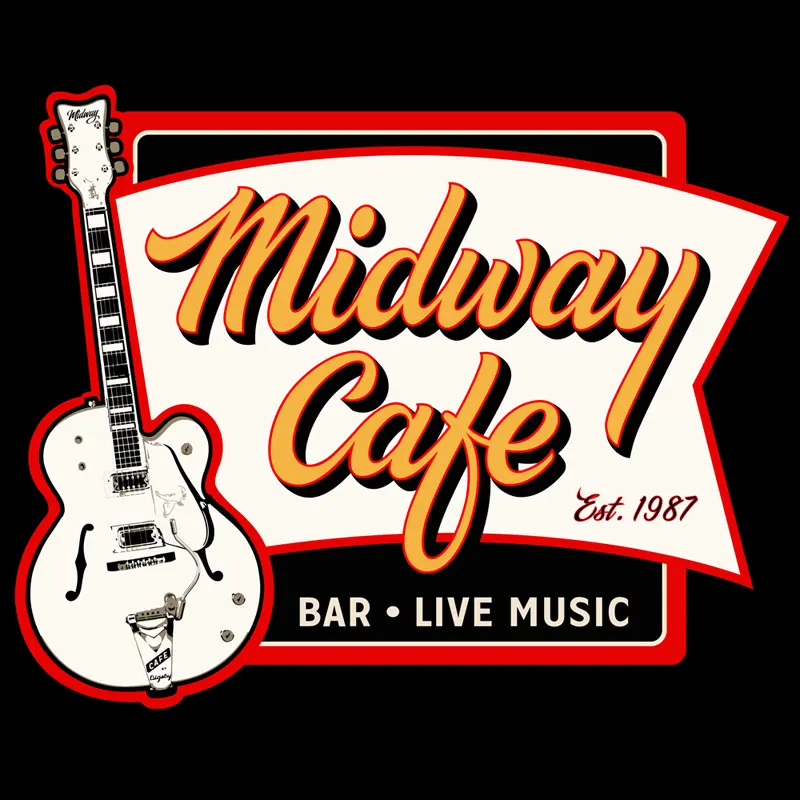
On most nights, you can hear music emanating from the small storefront at 3496 Washington Street in Boston’s Jamaica Plain neighborhood, where the Midway Café has provided booze and community to locals and visitors for 77 years. After adding music to the mix in 1987, it became one of the area’s go-to spaces for established acts and up-and-comers alike, especially after iconic venues like The Channel, T.T. the Bear’s Place and The Rathskeller closed. And it hosts some wildly inventive weekly events that you won’t find anywhere else, like Nerd Night and Queeraoke.
Beginnings
Originally a drinking establishment in the shadow of the elevated train tracks that ran down Washington Street, the Midway opened its doors in 1937, four years after America’s Prohibition experiment ended. Brothers Leo and Joe Gaquin ran it for 50 years until brothers Jay and David Balerna of Hingham, Massachusetts and one of their friends bought the bar in 1987. The Balernas were both recent Northeastern University grads, Jay having studied criminal justice and David majoring in business, and their aunt owned the building that housed the bar.
At first, the three 20-somethings ran the Midway as a bar only, replacing the kitchen with restrooms (but never bothering to remove “Café” from the name). There was little business, however, as Jamaica Plain was a rough, rather insular neighborhood at the time and few people wanted to take a chance on three young upstarts from the suburbs. After a couple of years, it became clear that there wasn’t going to be enough work for all three partners, so the brothers bought their friend’s share. In 2011, Jay purchased David’s half of the business and he’s run the Midway solo ever since.
Introducing music, Nerd Nights, Comedy Nights, Open-Mic Nights
In 1988, around the time that the elevated train tracks came down, everything changed. People started coming in night after night and, after years of empty barstools and scrambling trying to stay in the black, suddenly the Midway was turning a modest profit. JP has long been something of a bohemian, artist-filled neighborhood, so lots of the new clientele were musicians, which prompted the Balernas to invite them to play. Having both worked at Copperfield’s in the Fenway during college, they knew that hosting bands could be a game changer. “We put a sign up saying ‘OPEN JAM’ and the place started filling up with all the local musicians,” Jay says. “That’s how it was in the beginning.”
From that point on, the Midway became best known in JP and the wider area as a great place to play and/or see a gig. David handled the bookings, which were mostly blues bands or open blues jam at first. And as tastes changed, so did the bookings, since the Balernas weren’t afraid of giving anyone a shot as long as it brought in paying customers. Rockabilly became popular in the early ‘90s, for example, and soon the place was filled with fans in rolled-up jeans and pompadours.
The brothers’ efforts to keep the club current and unique led to them expanding the offerings in several creative ways. For example, Jay tells of the time his brother heard some academics telling stories at the bar and suggested that they start telling them in front of audiences, which gave birth to Nerd Nights. These days, Heather Timmons of TinyOak Booking books the talent and, according to frequent Midway performer and punk show organizer Eric Eino Johnson of The Grommets, she brings in all kinds of great shows. “She encourages ‘neighborhood’ bands to play here [and otherwise] they wouldn’t have a place to play,” he says, adding that the Midway’s vibe is “comfortable” and ”very organic.”
Adding to that vibe, the club started hosting comedy on Sundays in 2019, which Jay says has begun to get some traction. Tuesdays have featured hip hop and a variety of residencies in the past, but since 2022 have been open-mic nights. Timmons says that her booking philosophy includes a lot of balancing, making sure she doesn’t allow acts to become oversaturated in an area and ensuring that there aren’t too many out-of-town bands on the same bill. Most importantly, she says, is her strict “no jerks” policy, though she believes that everyone who wants to play deserves a chance to do so. “The tricky part is figuring out how to fit everyone in,” she says. “You’re constantly trying to find a balance between the needs of the artists and the needs of the venue.”
Hippie Hour, Dyke Night, Queeraoke
Several regular events include bands with longstanding residencies at the Midway, such as the Grateful Dead-inspired Hippie Hour on Fridays featuring Uncle Johnny’s Band, which has been jamming for over a dozen years. Conceived by John Frazee (formerly of The Allstonians), Jay says it seemed like an unlikely draw at first – he didn’t think there were enough Dead Heads in the area to support it – but Frazee convinced him to give it a shot and Jay’s glad that he did. “It’s real communal, real awesome,” he says.
Another draw that differentiates the Midway from other area clubs is its weekly Queeraoke Night. Jamaica Plain has long been a queer-friendly neighborhood and another bar, Costello’s, hosted a Lesbian Night for a number of years. In 1999, when a fire forced the organizers to seek another venue, they told Jay about the situation and he added Dyke Night to the Midway’s Thursday schedule. It started out as a dance party but in 2003, when they added karaoke, they rebranded it “Queeraoke,” which is now “one of the longest running queer nights in New England,” according to the Midway’s official website.
Looking back, Jay says introducing Queeraoke was one of the best business decisions he’s ever made. “It’s really been an anchor for us,” he says. “That saved our little rock club, to be honest [and] it’s great for the community. It’s just people psyched that they have a spot.” Deejay Summer’s Eve (aka DJ Peter, now in his 20th year hosting Queeraoke) points out that the event allows people to support each other in a world that’s not often very supportive, and that’s obvious as soon as people arrive; there are lots of hugs and a palpable excitement. Songs range from Metallica to rapped-out protests to ’70s soul and beyond.
Expansion, Surviving COVID-19
For most of its history, the Midway had a capacity of just 60. With the club’s popularity on the rise, in 2013 Jay wanted to expand into an adjacent storefront but the move wasn’t without its frustrations. The owner of nearby Doyle’s Cafe, the famous politico hangout, had objections, and what should have been a relatively easy process turned into a small war that was well-documented in the local press. When the Doyle’s owner retired and his nephew took the place over, the difficulties were quickly resolved and the Midway became the 99-person spot that it is today.
Beyond the fatalities and general dread of the COVID-19 epidemic, one of the most demoralizing effects of was the loss of live music but the Midway survived the nearly two years of shutdowns through a combination of federal, state, and city grants and other support. When things started opening up again, Jay noticed that Dropkick Murphys had livestreamed show with about 10 people in the audience and decided to do the same thing, getting a license that allowed for about 10% capacity to see the bands, but no alcohol sales. That brought live music back to the Midway, though bands had to play behind plexiglass. In the spring of 2022, when full capacity was allowed, it was like a dam breaking and the following year set the club’s record for the number of acts appearing.
Décor, Notable appearances
Small and dark, the Midway is the perfect spot for seeing bands up close. Dylan, the bartender, pours a perfect pint of Guinness to enjoy just a few steps from the stage, which is right next to the door and takes up about half the floor. But that’s not all there is to see. The place has its own funky aesthetic; every corner has something to catch your eye. Thousands of band stickers are pasted to nearly every surface. Christmas lights are draped here and there, along with all kinds of knick-knacks that provide something of a ’50s vibe. There’s a neon Pabst Blue Ribbon sign that was in Jay and David’s grandfather’s barn in Roslindale; when they were kids, they put it in their bedroom because they thought it was cool and in recent years it’s helped Pabst’s resurgence as a brand in Boston. Jay bought most of the guitars on the wall at pawn shops – many aren’t even functional – and they contribute to the cozy, friendly, thoroughly rock ’n’ roll feeling of the place.
Many well-known performers have taken to the Midway stage and/or been in the audience. Balerna cites Morphine, when they were known as Treat Her Right, and Babaloo, known for their punk mambo. Peaches, whose breakthrough international hit was “F#@k The Pain Away,” played there. Other bands include Lyres, The Upper Crust, Rich Parsons of Unnatural Axe and The Real Kids. Former J. Geils Band frontman Peter Wolf has been seen seated in the audience and Dan Aykroyd came in while filming the 1996 movie Celtic Pride, signing autographs for the patrons.
The majority of bands are lesser-known ones that play for the sheer joy of it and The Grommets’ Johnson says he likes to gig at the Midway “for the engagement” with the audience. And that’s fine with Jay Balerna, who says he’s happy that the Midway has become such an elemental part of Jamaica Plain’s cityscape over the decades. “You know, the ‘dive bar’ is going the way of the dodo bird,” he says. “Dive bars, there just aren’t a lot of them around. But this place is kinda legendary. Keeping it open for so long, we’re a staple over here in JP, which is great.”
(by John Radosta)
Lifelong Boston resident John Radosta is the co-author (with Keith Nainby) of Bob Dylan in Performance: Song, Stage, and Screen (Lexington, 2019) and has written numerous articles about Dylan and Woody Guthrie for a variety of publications.

